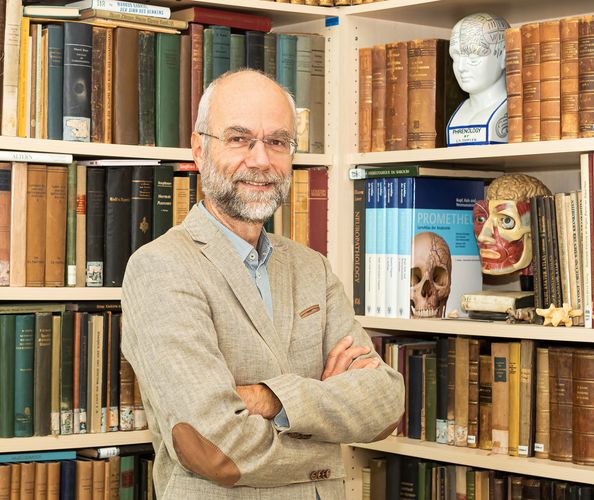There are currently around 1.2 million people living with Alzheimer’s disease in Germany. Some 500 new cases are diagnosed every day. According to WHO estimates, the disease will be the second most frequent cause of death worldwide in around 20 years, overtaking tumour diseases. Developing preventive or therapeutic strategies is therefore one of the most important challenges of biomedical research today. However, so far all attempts to develop a treatment have failed. “To date, well over 300 therapeutic procedures have been successfully developed and tested in animal models. None has shown therapeutic efficacy in patients,” said Professor Thomas Arendt, Director of the Paul Flechsig Institute for Brain Research. This inability to translate from the animal model to the patient prompted him to fundamentally doubt our previous understanding of the disease.
Human genome compared with that of other mammals
In collaboration with the working group led by Professor Peter Stadler from the Interdisciplinary Centre for Bioinformatics (IZBI) at Leipzig University, Arendt and his team began by comparing the activity of the genes of Alzheimer’s patients with those of healthy people. Here they encountered a pattern: the activity of certain genes was different in Alzheimer’s patients than in healthy people. They then traced the evolutionary development of these genes and compared them with the genomes of non-human primates and other species. “The genomes of most mammals are now known and have been sequenced. This information is stored in large databases, allowing us to track the changes these genes underwent during evolution,” said Professor Thomas Arendt.
Affected brain structures and genes only changed in recent human development
The researchers were able to show that recent evolutionary adaptations of the brain are causally linked to the emergence of the disease. It primarily affects those brain structures that developed late in the recent development of mankind up to Homo sapiens. At the same time, the genes whose activity is altered in the disease were subject to evolutionary adaptations in our recent phylogenetic past. “The reasons for these changes in our evolution from great apes to humans are the result of adaptations that optimised the performance of the human brain,” said Arendt.
Most animal testing highly unsuitable
This allowed Arendt to scientifically prove the concept he had been pursuing for some time: that Alzheimer’s is a phylogenetic disease, i.e. one relating to evolutionary development. It also becomes clear that Alzheimer’s disease is specific to humans, meaning that animal experiments are very limited in their ability to simulate its mechanism. “This insight may well have far-reaching implications for future therapy development. The majority of animal experiments, which are carried out almost exclusively on mice, are highly unsuitable because their gene structure differs significantly from that of humans,” said Professor Arendt. He explained that only certain partial aspects of the disease could still be tested in animal models. In future, the development of therapeutics would have to focus more on the genome segments and cell components that emerged in the more recent phylogenetic development of humans.
Decades of expertise in the field of Alzheimer’s research
Thomas Arendt has been researching Alzheimer’s disease for 40 years. In the early 1980s, he was involved in the discovery that established the basis for the only possible treatment to date: the researchers observed that neurones which use the neurotransmitter acetylcholine to transmit signals die off in the brains of Alzheimer’s patients. The neurotransmitter is no longer formed, and the transfer of information stops functioning. A special drug can at least slow down this process. In December 2018, Leipzig University granted a biotechnology company in the US an exclusive licence for a diagnostic blood test developed by Professor Thomas Arendt.
Original publication in Molecular Psychiatry:
“Alzheimer-related genes show accelerated evolution” DOI: https://doi.org/10.1038/s41380-020-0680-1































































